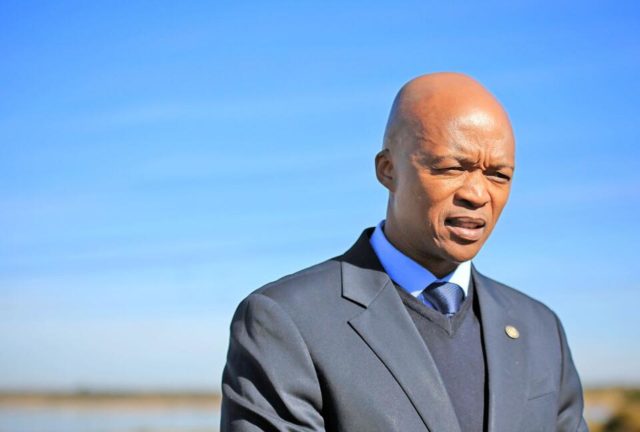The Minister of Health announced an additional 67 people testing positive for Covid-19 in the Northern Cape, bringing the cumulative total to 24,000 people
THE NORTHERN Cape MEC for Health, Maruping Lekwene, has raised the alarm over a surge in the number of Covid-19 infections in the Province.
The Minister of Health, Dr Zweli Mkhize, has meanwhile warned that a new variant of Covid-19 appeared to be driving the second wave of infections.
Mkhize also noted that a larger portion of younger members of the population with no comorbidities were presenting with critical illness.
He, however, believed that the current restrictions of social distancing, hand washing and sanitising and mask wearing were sufficient precautionary measures, at this stage.
Lekwene stated that according to the latest figures, as of December 18, a total of 24,000 laboratory-confirmed cases of Covid-19 had been detected in the Northern Cape. “Of these, 1,873 are considered to be active infections. There was an 8.1 percent increase in the number of new cases detected from December 6 to 12. This represents 279 cases compared to 258 new cases detected in the previous week,” said Lekwene.
He indicated that an additional 23 deaths were reported in the Province. “The overall case-fatality ratio is 1.47 percent.
“The Pixley ka Seme District reported the highest proportion (49.5 percent) of new cases, followed by the Frances Baard District with 20.4 percent. The ZF Mgcawu District showed a 18.6 percent increase in the number of confirmed cases while there was a 7.5 percent increase in the Namakwa District. The John Taolo Gaetsewe District represents 3.9 percent of the number of cases in the Province.”
Lekwene added that in the run-up to the first wave of Covid-19, during March to August 2020, the curve was flattened significantly both nationally and in the Northern Cape. “Due to the movement patterns of people between provinces, our surge and final peak arrived much later than the rest of the country. This delay was predicted by the epidemiologists, although the cumulative total and peak numbers were much less than predicted at the time.”
He stated that the flattening of the curve was of significant assistance to health systems, whereby the number of infections during the early months were reduced.
“It was always explained that the flattening of the curve was unlikely to significantly reduce cumulative numbers. It was also only possible to constrain people’s freedom of movement for a short period before fatigue and restlessness set in.”
Lekwene warned that festive season celebrations and organised and unorganised large gatherings posed a huge threat to localised outbreaks and the potential for widespread transmission of Covid-19. “Mid-January to May are predicted to influence the rate of infections and size of the peak in the Northern Cape.”
He committed to ensuring that state health systems were equipped to cope with a resurgence in infections.
“Capacity will be assessed continuously and strengthened where necessary. We have since highlighted that our facilities have in excess of 2,000 beds available for Covid-19 cases. This includes more than 80 high and intensive care beds across the Province.”
Lekwene commended health professionals and outbreak response teams for tirelessly working towards containing the further spread of the pandemic in the Province.
He stated that in line with restrictions that were announced by President Cyril Ramaphosa on December 13 to curb the spread of the virus over the holiday season, alcohol consumption in all public spaces was strictly prohibited.
“Beaches and public parks in Northern Cape are open from 9am until 6pm.
“Retailers may only sell alcohol from 10am and 6pm from Monday to Thursday.
“Wineries may continue to offer wine tastings over weekends.”
He added that the national curfew was extended from 11pm until 4am.
“Bars and restaurants must close at 9pm to allow staff to travel home.”
Lekwene pointed out that all gatherings, including religious services, were limited to 100 people for indoor events and 250 for outdoor venues.
“The total number of people inside a building may not exceed 50 percent of the capacity.
“All gatherings must show social distancing measures and provide hand sanitiser.”
He indicated that post-funeral gatherings were not permitted.
Lekwene warned that failure to enforce the lockdown regulations could result in a fine or imprisonment of up to six months.
“Public transport operators must ensure that all passengers wear masks.
“Owners must ensure that everyone entering buildings, offices and stores must wear masks.”
He said that public health awareness campaigns would be rolled out to educate communities on the importance of adhering to prevention measures.








